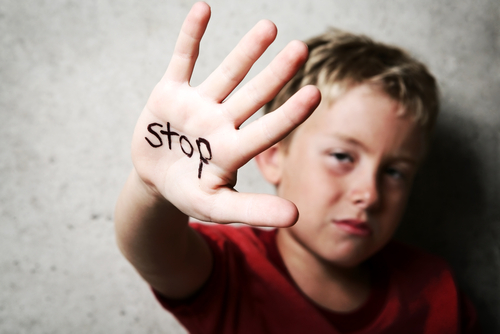All forms of child abuse are against the law. ‘Child abuse’ is any action towards a person under the age of 18 that harms or puts at risk their physical, psychological or emotional health or development. It can take the form of:
- Physical Abuse: Punching, hitting, strangling, slapping, kicking, shaking, biting, throwing, burning or ay actions that lead to someone’s body being harmed;
- Emotional/Psychological Abuse: Constant criticism, teasing, ignoring, controlling behaviour, yelling, rejection, exposing you to violence between parents or other household members or exposure to drug use;
- Neglect: The failure to meet your basic needs for adequate supervision, clothing, shelter, food, safety, hygiene, medical care and education; or
- Sexual Abuse: Any sexual act or threat made to you including an adult involving you in a sexual activity by using their power over you or taking advantage of your trust, and deliberate and inappropriate touching or language.
All children have the right to be safe from abuse and neglect. You do not have to put up with such behaviour from an adult. It can take the form of a singular action or multiple things that have happened over a longer period of time. It can happen anywhere, including: school, child-care centre, community or at home. It can be done by any adult such as a parent, caregiver, teacher or family friend. It is ok to talk to someone about it that you trust. The law can protect you if you let the appropriate authorities know what is happening.
Is it OK for my Parents to physically punish me if I have done something wrong?
No person is allowed to use extreme force to hurt you, however, it is not against the law for a parent to use reasonable physical punishment to discipline a child (i.e. a smack). If your parents use more force than is necessary in the circumstances, then their actions could be against the law. If you feel that you are being punished too harshly, too often or you feel constantly scared of being hurt, or you have an injury after being hit, you should contact someone for help.
What should I do if I am being abused or scared that I will be abused?
If you believe you are in immediate danger of being hurt or abused, please call the police on 000 and if you can, go to a secure place like a trusted family friend, your school, a police station or a medical centre. If you have been hurt, please seek medical attention at a doctor’s office or hospital so that they can make sure you are OK. It is important in any situation to tell someone about your situation. If you are being abused you should talk to an adult you trust, like a close friend, doctor or teacher. They may have to report what is happening to the authorities, but the person who hurt you will not be told who reported it.
What happens after child abuse is reported?
If either the Police or ‘Child Abuse Report Line’ is contacted, then a representative of either institution can come and investigate the situation. It is important to remember that information that you provide will be kept confidential – the person who hurt you will not know who contacted them. Different things can happen when the authorities investigate, including:
- If you are in immediate danger, they can move you to a safe place;
- If the authorities think that there is a chance you might be harmed, they will work with you, your family and other professionals to ensure you are safe. This might include giving you help, counselling, information and recommending you to health or other care providers.
- The authorities may seek a ‘court order’ to prevent a person from hurting you (order that if someone hurts you then the court can punish them). This may happen by a ‘domestic violence order’ that can forbid them from being near you.
- If the situation is more serious, they can create a plan to protect you; these plans can be in the form of an ‘intervention order’ or a ‘care and protection order’; or
- Removal from your family will be done at the last resort, and only if you are considered to be in immediate risk of serious harm.
The people you can talk too:
To talk about anything that is troubling you, please contact the ‘Kids Helpline’. This is a supportive service for people between 5 and 25 years of age. They are available 24 hours on the free phone line: 1800 55 1800. You can also email them by going to: www.kidshelp.com.au/teens/get-help/email-counselling or their online chat service at: www.kidshelp.com.au/teens/get-help/web-counselling.
If you would like some help reporting child abuse, The South Australia Department for Education and Child Development can also be contacted at any time on: 13 14 78 (24 hrs – 7 days) or 000 in an emergency.
If you call either of these numbers you are not strictly required to provide your name. If you are however, still worried about your privacy you can either clear your Internet or call history or call from a payphone.
This article describes the law in relation to child abuse in South Australia. The law may differ if you are in a different State or Territory of Australia.

